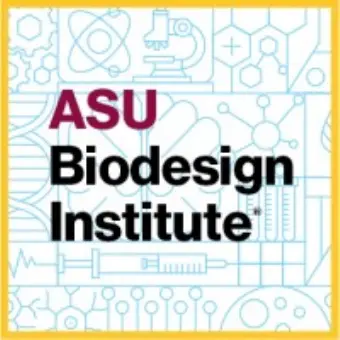Postdoctoral Research Scholar - Beus Prize Fellowship

Arizona State University
Arizona State University: Office of the University Provost: The College of Liberal Arts and Sciences: School of Earth and Space Exploration
Location
Open Date
Sep 25, 2025
Description
The Beus Center for Cosmic Foundations at Arizona State University invites applications for the Postdoctoral Research Scholar position of Beus Prize Fellowship.
The Beus Center for Cosmic Foundations at Arizona State University brings together observational and theoretical astrophysicists, educators, instrument builders, and engineers to advance our knowledge of the formation and evolution of stars and galaxies. Beginning with the first stars and galaxies, the explosive deaths of successive generations of stars seeded galaxies with elements, creating cosmic ecosystems of stellar birth, death, and gas recycling, leading to a global peak and decline of star formation in the Universe. The Center aims to accelerate research into these complex processes throughout cosmic time. We seek to foster and support an inclusive community of early-career scientists who will lead the next great discoveries to better understand our place in the cosmos and enhance the societal impacts of this research.
This position is a full-time, benefits-eligible position with an anticipated start date around July 2026. The initial appointment is for one year with subsequent annual renewal for up to two additional years contingent upon satisfactory performance, the needs of the university, and availability of resources. This position comes with a fiscal-year salary of $84,500, annual discretionary research funds of $16,850, and a relocation payment of $5,750.
More information about the Beus Prize Fellowship can be found at:
http://sese.asu.edu/beus-center-for-cosmic-foundations
School of Earth and Space Exploration
The Center is part of the School of Earth and Space Exploration (SESE), a hub of interdisciplinary research spanning astrophysics, astrobiology, cosmology, geological sciences of the Earth and planetary bodies, exploration systems design and instrumentation, and discipline-based education. Researchers in SESE pioneer new technologies for scientific exploration and benefit from state-of-the-art facilities including high-performance computing, access to the 2x8.4m Large Binocular Telescope, 6.5m MMT telescope, 6.5m Magellan telescopes and a host of 2m-class telescopes owned and operated by the State of Arizona. ASU is a partner in the Giant Magellan Telescope, Hydrogen Epoch of Reionization Array, and Owens Valley Radio Observatory Long Wavelength Array. It is participating in the CMB-S4 consortium and is a member of the Simons Observatory, Toltec project, along with balloon and small-satellite programs. For more information, please visit: https://sese.asu.edu/
The College of Liberal Arts and Sciences
The College of Liberal Arts and Sciences is the academic heart of Arizona State University, committed to improving communities on a local, national and global scale. We support the professional development and growth of our faculty and staff in their cutting-edge research to advance these aims. Within The College, our faculty engage with a large, curious student body, guiding them as they grow into socially aware, critical thinkers and writers able to succeed in a wide range of careers and to address the challenges of the twenty-first century. Advancing the success of our students remains our top priority. To learn more about The College of Liberal Arts and Sciences, please visit https://thecollege.asu.edu.
Arizona State University
ASU exemplifies a new prototype for the American public research university. As articulated in the ASU Charter, ASU is a comprehensive public research university, measured not by whom it excludes, but by whom it includes and how they succeed; advancing research and discovery of public value; and assuming fundamental responsibility for the economic, social, cultural and overall health of the communities it serves.
Qualifications
Essential Functions:
- Conduct original research addressing important questions in applicants’ field
- Document findings and publish high-impact results
- Present at scientific meetings
- Engage in research collaborations
- Help enhance the societal impacts of science and engineering through community outreach or other activities
Required Qualifications:
- Ph.D. in a relevant subject by time of the appointment, including but not limited to astrophysics, physics, engineering, education, or another related field.
- Candidates must be within four years from receipt of their doctoral degree.
Desired Qualifications:
- A research proposal that demonstrates the potential for high impact on important questions related broadly to understanding our cosmic origins, including (but not limited to):
- Observations or theoretical modeling of the formation and evolution of stars, galaxies, and their cosmic ecosystems; large-scale structure and the conditions that seeded galactic systems; and nucleosynthesis and element generation
- Techniques for statistical analysis, data analysis, numerical simulation, or software
- Instrumentation and engineering advances in signal processing, detectors, interferometers, space-based instruments, and other relevant technology
- Upcoming measurement approaches include intensity mapping, time domain, and multi-messenger probes
- Discipline-based educational research in the context of our cosmic origins
- A record of prior research achievements, activities, and experience, such as prior publication and/or other documentation, demonstrating the potential to accomplish proposed research objectives
- A record of prior teamwork demonstrating the potential to build new collaborations with Center affiliates and other researchers
- Evidence of strong verbal and written communication skills.
- Demonstrated commitment to working with faculty, staff, students and communities to advance the principles of the ASU Charter
Application Instructions
Application Instructions:
The application deadline is November 5, 2025. Applications will continue to be accepted on a rolling basis for a reserve pool. Applications in the reserve pool may then be reviewed in the order in which they were received until the position is filled.
Candidates will be asked to create or use an existing Interfolio Dossier to submit the following application materials:
- Cover letter
- Current curriculum vitae
- Contact information for three references
- Research overview not longer than 5 pages (including figures) using 12-point font. References can extend onto additional pages. The overview should include:
o A summary of your current and previous work
o A research proposal addressing key questions of our cosmic origins that align with the Center and highlights potential collaborations with Center affiliates.

